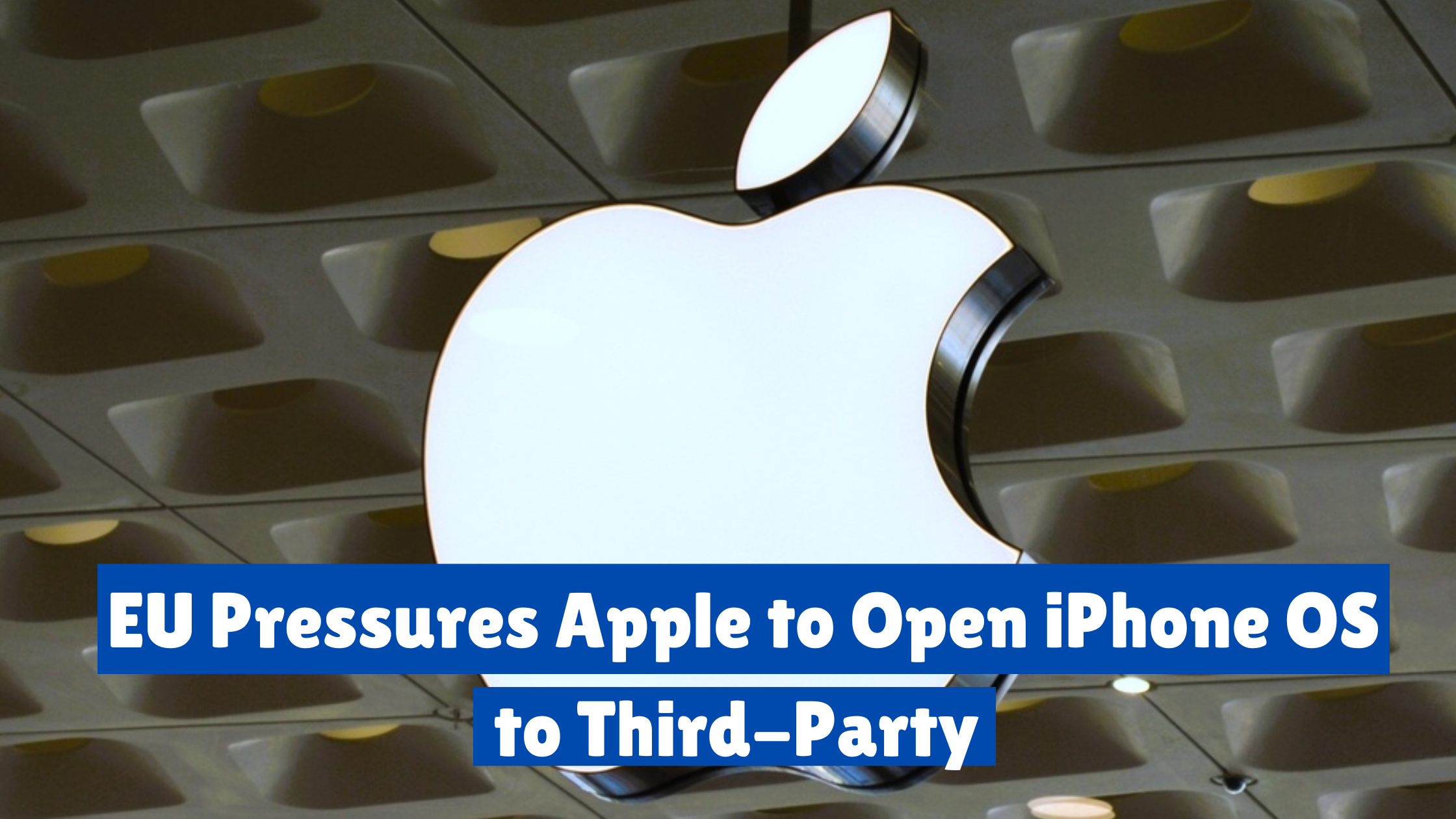EU Pressures Apple to Open iPhone OS to Third-Party Developers Under Digital Markets Act

The European Commission has now come directly in front of the ranch in Europe with a direct warning that Apple has only a month time period with which it can open the iPhone operating system (iOS) for third-party developers and rival companies. This comes as the EU is seeking to impose the Digital Markets Act(DMA) which aims to prevent monopolistic large technology companies from dominating the market unreasonably. If Apple refuses or neglects to obey the regulation the company will be subject to severe consequences such as fines equivalent to up to 10 percent of its annual income from all around the world.
The move is something that may be interpreted by industry players as the strong intention of the EU to crack down on measures that close down competition. But how was it brought to this stage and with what consequences for Apple and the tech world?
The Digital Markets Act (DMA) is a new regulation from the EU to keep the market balance in the digital marketplace. The DMA is aimed at large technology firms, known as ‘gatekeeper’ firms that dominate key internet platforms and services. These gatekeepers are required to be more open to third-party developers and firms, to create third-party? Third-party developers and firms that wish to enter and compete fairly in this market have been compelled by these gatekeepers to be let in to compete fairly.
On Thursday, the European Commission said it had initiated two specification procedures aimed at clarifying how Apple should implement the DMA. Such proceedings target areas in which Apple’s policies at the moment restrict third-party participation the most notably.
The first action is based on connectivity features for iOS connected devices including wearable devices like smartwatches, headphones, and virtual reality headsets among others. This is to ensure that developers can easily and easily platform their devices with those of Apple especially on issues related to device coupling, notifying, and data transmission.
The second proceeding deals with the internal Apple procedures for the review of interoperability requests from developers. It also includes looking into how open and non-discriminatory Apple has been in the procedure of allowing developers to gain access to core app functionalities on the iOS system. Still, many developers complained that Apple is camouflaged and lame in responding to their requests, mostly about the access to some services — the voice-activated assistant, Siri, or the NFC chip used in Apple Pay, for instance.
In a recent statement, Margrethe Vestager, the EU’s Executive Vice-President in charge of competition policy said the following about these proceedings. “We understand the importance of free and open digital marketplaces. Interoperability, such as with Smartphones and their operating system is part of these strategies Vestager said.
Europe’s anti-competitive behaviors are however not the only legal hassles that has been experienced by Apple. The company has been the subject of regulatory action in various locations such as Japan, South Korea, and the United States of America. In each of these regions, Apple has been accused of monopolizing digital markets and stiffening competition.
The most famous legal issues in connection with Apple can be divided into two groups: antitrust cases and individual civil cases, some of the most interesting and long-standing legal disputes related to Apple are litigation against Spotify. The music-streaming service said that Apple uses its position in the App Store as a predatory means to pin down competing services. This led to a $2 billion fine from the European Commission earlier this year and Apple has since threatened to appeal this decision.
Apple is now in somewhat of a predicament and must now make a very important decision. It can either accept the EU’s rules fully and allow third parties wider access to the iPhone operating system or it can continue to defy the rules and accept the financial and legal repercussions that come with it. Thus, despite some effort to adjust to the DMA, its rather cautious endeavor to date unveils that an ideological shift might not be next.
If Apple declines to cooperate within the six-month timeframe, then the sanctions that the EU will have on the company could be just scratching the surface. Other global regulators could also act similarly thereby resulting in a much bigger wave of anti-trust actions against the company. This could turn into a new era not only for Apple alone but for all the technological giants around the world as the regulators start using the gatekeeper companies for their unfair practices.
The EU’s confrontation with Apple on opening the iPhone operating system could be considered one of the milestones in the inevitable struggle of the authorities with tech goliaths. The Digital Markets Act aims at giving consumers the right fight to distortion, and now Apple is in the middle of this regulatory drive. It remains to be seen that as the six-month marker approaches what Apple will do and what the consequence and fallout of its actions will mean not only for itself but for the technology sector as a whole.
TellerToday collects & utilizes cookies from third-parties & affiliate networks to improve user experience. If you buy a product or service after clicking on one of our links, we may get a commission.